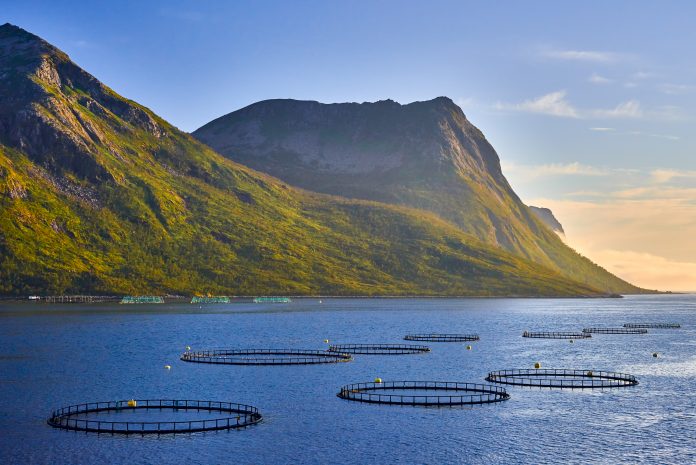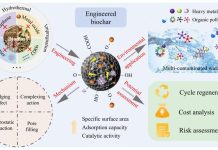Sophie Peutrill, Global Campaign Manager – Fish Welfare at Compassion in World Farming, argues that intensive fish farming is unsustainable and unethical and we must do more to reform this growing industry
Intensive fish farming is intended as a well-meaning solution to feed a rapidly growing global population whilst minimising habitat destruction and ocean depletion caused by overfishing. Yet, this couldn’t be further from the truth. Underwater factory farms have grown to monstrous sizes, contribute to environmental degradation, impact the biodiversity of wild aquatic species and increase antibiotic resistance. Fish farming also causes extreme suffering, affecting hundreds of billions of animals globally. With the industry on track to grow by a third by 2030, governments and businesses must prioritise reforming fish farming into a sustainable and higher welfare industry.
Intensive fish farming
It may initially appear that farming fish has taken pressure off oceans and wildlife, but many farmed fish are carnivorous and rely on a diet of wild-caught fish – as many as 20% of wild-caught fish are consequently fed to farmed fish. A large amount of these fish are caught off the coast of West Africa or South America by large foreign corporations, impacting local vulnerable communities that rely on these fish for food and trade. In addition to this, fish farming is a significant contributor to pollution in surrounding waters. Excrement, food and decaying fish from sea cages pass freely into the surrounding water and seabed, which can cause algal blooms and oxygen depletion which can kill aquatic wildlife. Escapes and diseases from fish farms impact wild fish communities, while the use of antibiotics to try to reduce these diseases promotes antibiotic-resistant bacteria.
Fish suffer prolifically on farms. Crammed in barren cages by the tens of thousands, they have little else to do but swim in endless circles over a period of months or years. Farmed fish are routinely starved for days and can be killed in deplorable ways without prior stunning. They are frequently riddled with disease as a result of living in unnaturally close quarters with countless other fish. Farmed salmon, for example, suffer from debilitating sea lice infestations that eat away at their flesh and eyes and can lead to death. This contributes to mortality rates on salmon farms which can be as high as 40%. If a chicken farm had 40% mortality rates, it’d hit the headlines.
Despite plentiful scientific evidence that fish are intelligent and emotional animals that feel pain, there is a stark disconnect between this evidence and the existing protections for these amazing animals. In short, fish are largely ignored.
Reform the fish farming industry
Intensive fish farming is rapidly ramping up production, but cannot adequately feed global communities in a sustainable or ethical way. Solutions do exist, such as using extensive farming methods with very low or zero feed input, farming only herbivorous fish to stop reliance on wild fish for feed, reducing the numbers of fish farmed in each cage, compulsory humane slaughter, better regulation of the industries and better enforcement of existing regulation. Moreover, greater emphasis should be placed on farming aquatic vegetables and mussels as a sustainable protein alternative.
Before scaling up, as planned, the fish farming industry must take the time to improve its environmental and animal welfare standards. That’s the sustainable and ethical thing to do.











